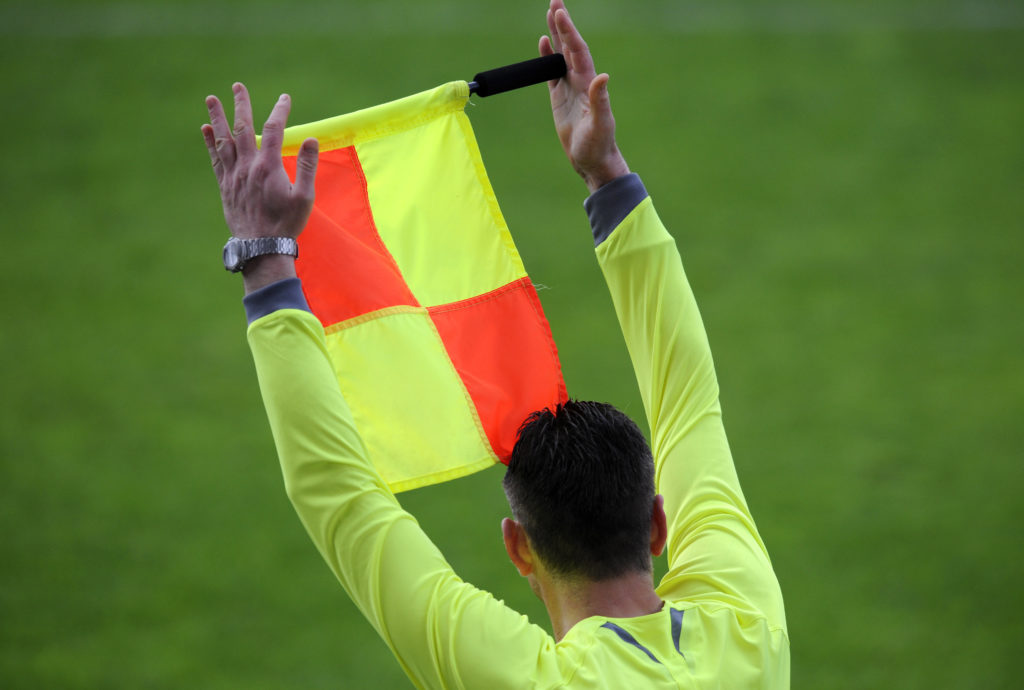The evidenced benefits of being mentally tough include enhanced levels of performance on the pitch, greater levels of positivity around games, improved ability to overcome to challenges and changes within matches, and being able to manage the game better, the stress and pressure that surrounds the day. These allow you to achieve an increased all round sense of satisfaction at your performances, which in turn has a positive effect on your wellbeing. Since what you think determines, for the most part, your subsequent behaviour then it stands to reason that taking care of your brain to ensure it remains healthy and active is critical to your short and long term successes within your refereeing career.
Extrapolate a referee’s success on the pitch and you can see why it is advantageous to look for enhanced mental toughness and activities that promote an active and healthy brain.
Here are seven tips for a healthy brain which are also important for achieving improved mental toughness;
1. Make good nutrition a priority
Food choices can influence memory, cognitive skills and mood, all of which are important for a good refereeing performance. Good food choices also have a positive affect on your overall mental health, as well as our ability to perform. A diet of fresh unprocessed food, including leafy greens, lean protein (especially oily carnivorous cold-water fish, such as salmon), dark chocolate, seeds, nuts and whole grains is recommended. Caffeine is good in moderation, while certain fats are fundamentally bad.
2. Increase your physical activity
Exercise generates additional blood flow to the brain, which strengthens existing neural networks and assists in the generation of new neurons, leading to increased neuroplasticity. additionally it reduces the risk of cognitive impairment and neurodegenerative disease. 150 minutes of aerobic activity or 75 minutes of high-intensity interval training is recommended each week which can mirror intense periods of games referees officiate. Experts warn that sitting for lengthy periods is detrimental to brain and overall body health.
3. Sleeping well
Unsurprisingly, experts also recommend that sleep is essential for a healthy brain. Despite public perception, everyone performs better with a minimum of seven hours’ sleep each night, as a continued lack of sleep leads to an outcome similar to being slightly drunk. Sleep isn’t simply time for the brain to repair itself; it also allows long-term memories to strengthen, whilst improving mood and the ability to focus which is an important part of a referee’s pre-match preparations.
4. Exercising the brain
Experts also positively promote brain-training exercises, beginning with simple exercises such as cryptic crossword puzzles or learning new words and what they mean. These only work when practised consistently (similar to physical exercise). A key aspect of exercising our brains is curiosity, which opens our minds towards new ideas and discoveries as well as making us more open to learning and remembering.
5. Managing cognitive energy
The energy supply of the brain has a capacity but can be recharged quickly. Such as the 15 minute half time break between 45 minute periods of intense activity faced during a match. This can lead to greater focus and productivity in each half.
6. Mono-task, rather than multi-tasking
Our ability to process multiple ideas at once is no different depending on gender or age. Focusing on one task at a time is a better way of ensuring each task is done well. You will find that your refereeing is more efficient when you work through the challenges of a game methodically.
7. Stay focused and in the moment
Additionally, experts advocate mindfulness, focusing attention on staying in the present moment. For referees, this can be done prior to a game through meditation as a means of enhancing your concentration levels, reducing stress, improving decision-making ahead of blowing the first whistle. There is evidence to suggest that mindfulness could even increase your lifespan. With its ability to reduce the production of the stress hormone cortisol, mindfulness can help conserve mental energy, a high amount of which is used during the 90+ minutes of a football match. The activity can also assist in consolidating new learnings into long-term memories.
At The Third Team I work individually and in collaboration with different professionals where I have developed workshops associated with Resilience and Mental Toughness Development to help referees. The workshops are interactive, where referees are encouraged to open up and share their experiences to help each other.
Feel free to contact me if you’d like to know more about my workshops and how I could help you or your officials.
Best Wishes,

Nathan Sherratt
Referee Educator & Managing Director of The Third Team

Nathan Sherratt
Nathan Sherratt, Referee Educator, Resilience Trainer and Managing Director of The Third Team. A Mental Toughness Practitioner based in County Durham, North East England.

